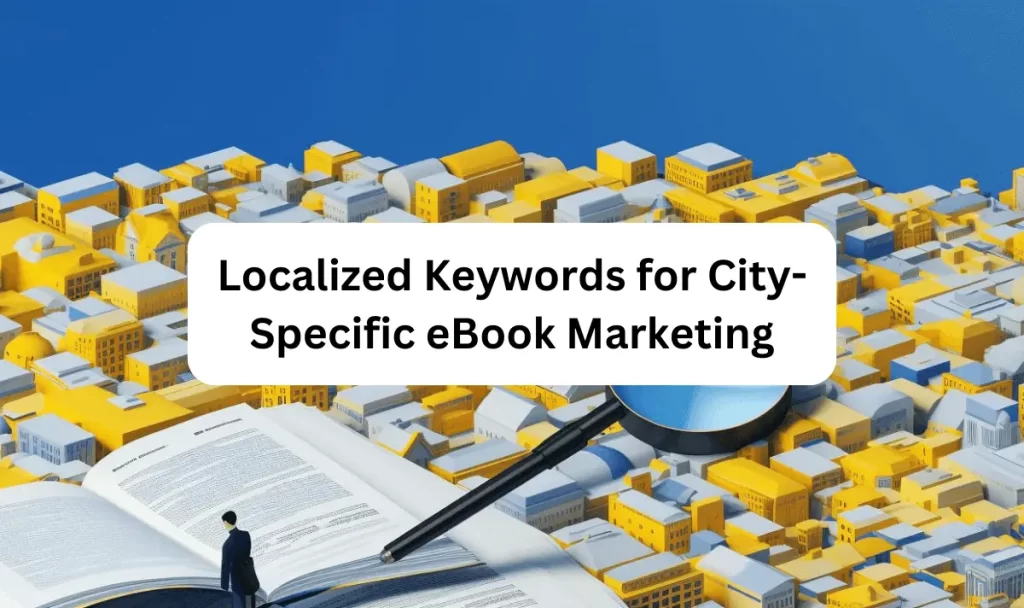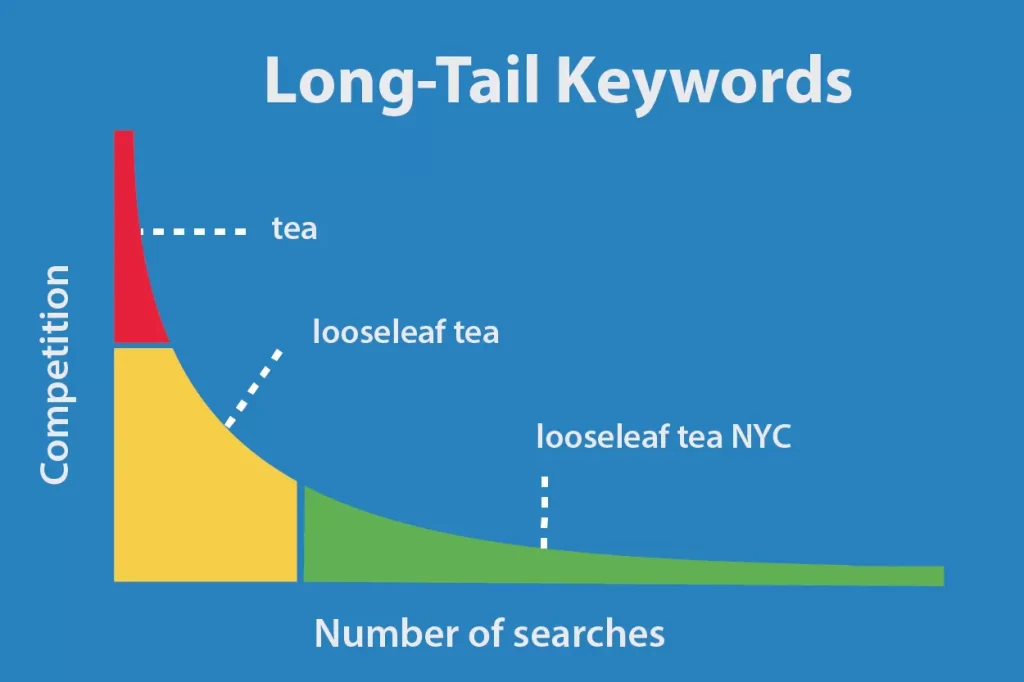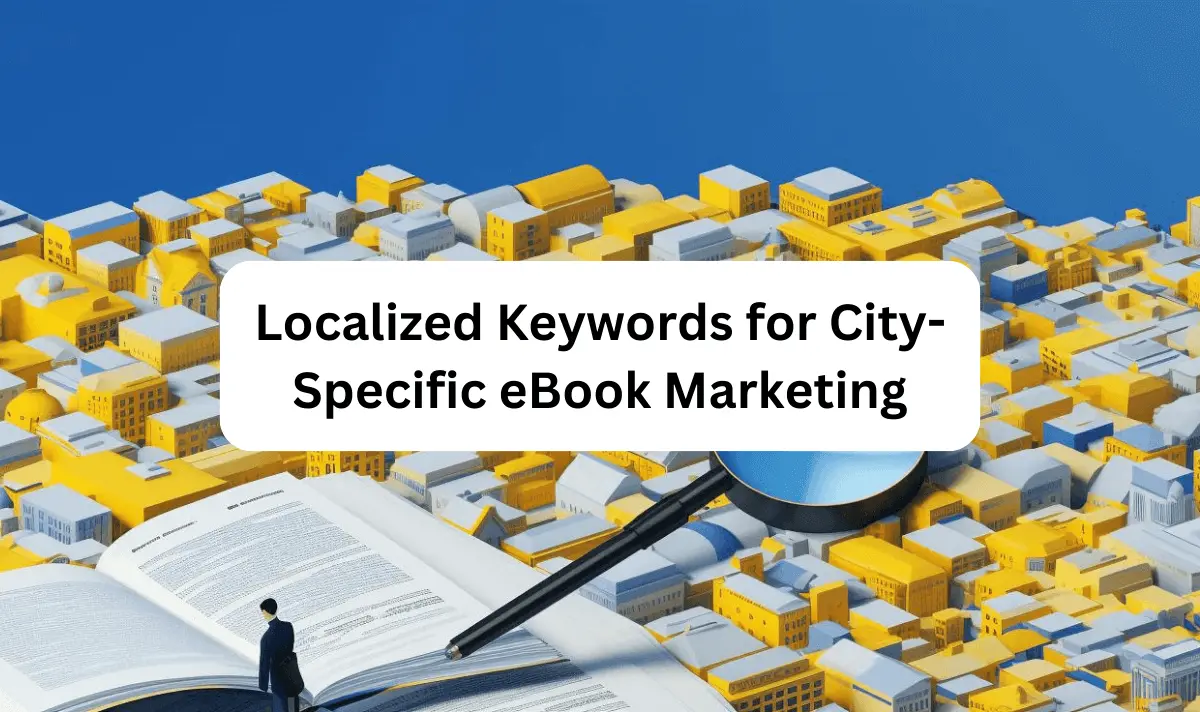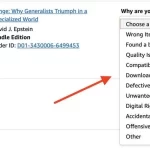
Introduction
When it comes to promoting your eBook, using localized keywords can be a game-changer. As an experienced writer, I’ve witnessed firsthand the power of tailoring your marketing efforts to specific cities. By incorporating unique terms that resonate with local readers, you can significantly boost visibility and engagement. Let me share my insights on how these uncommon yet effective strategies can help skyrocket your eBook sales within targeted locations.
Content
Benefits of Using Localized Keywords for eBook Marketing
As an experienced writer, I’ve discovered the immense benefits that come with incorporating localized keywords in eBook marketing. Let’s delve into these advantages and explore how they can elevate your promotional efforts.
Related Suggestion for you: Maximizing Ebook Exposure Through Cross-Media Promotion
1. Improved Visibility

Localized keywords play a crucial role in boosting the visibility of eBooks within search engine results. By strategically integrating location-specific terms, you can enhance your book’s chances of ranking higher in relevant searches. This targeted approach ensures that your eBook becomes more visible to your intended audience within specific cities.
2. Higher Conversion Rates
Using city-specific keywords helps attract more relevant leads, increasing the likelihood of conversion. When readers find content tailored specifically to their location and interests, they are more likely to engage and take action. For instance, imagine a potential reader searching for “best travel guides in New York City.” If your eBook appears as a top result due to localized keyword optimization, it creates a strong connection with the reader and improves conversion rates.
3. Enhanced User Experience

Localizing keyword usage goes beyond SEO benefits; it also contributes to creating a personalized experience for readers. By utilizing location-specific terminology throughout your eBook marketing materials, you establish relevance and resonate with your target audience on a deeper level. Real-life case studies have shown improved user engagement and satisfaction when readers feel like content speaks directly to them based on their geographical context.
Strategies to Identify Effective Localized Keywords
As an experienced writer, I’ve honed my skills in identifying effective localized keywords for eBook marketing. Let me share some valuable strategies that can help you navigate this process successfully.
1. Researching Target Cities
To start, it’s crucial to understand the demographics, interests, and preferences of your target audience in different cities. By conducting thorough research using tools like Google Trends and Keyword Planner, you can uncover popular search terms specific to each location. This data-driven approach allows you to gain insights into what resonates with readers in various cities.
2. Location-Based Long-Tail Keywords

Long-tail keywords play a significant role in city-specific eBook marketing. These keyword phrases are more specific and have less competition than broader terms. Understanding the significance of long-tail keywords enables you to generate location-based variations that truly resonate with local readers’ needs and desires.
For example, instead of targeting “travel guide,” consider incorporating a location-specific element like “best travel guide for New York City attractions.” This enhances relevance and increases your chances of reaching interested readers who are actively searching for information related to their desired destination.
3. Competitor Analysis

Analyzing competitors’ keyword strategies within specific cities is essential for finding gaps or opportunities where your eBook can stand out using unique localized keywords. By assessing their approaches and identifying areas they may have overlooked or neglected, you can tailor your own strategy accordingly.
Explore more articles: Ebook Marketing through Virtual Book Clubs and Online Communities
Consider exploring niche topics or lesser-known locations within a city that might not be heavily targeted by competitors yet still hold potential interest among readers seeking specialized content.
4. Conducting A/B Testing
Conducting A/B testing is vital when determining which localized keyword combinations yield better results for promoting your eBook effectively. By creating multiple versions of advertisements or landing pages with different keyword variations targeted at specific cities, you can measure performance metrics such as click-through rates (CTR) and conversion rates.
For instance, you can compare the effectiveness of using “eBook marketing Los Angeles” versus “digital book promotion LA.” By analyzing the data and identifying which combination resonates more with your target audience, you can optimize your eBook’s promotional efforts accordingly.
Conclusion
In my experience as a writer, I’ve witnessed the remarkable impact of using localized keywords in eBook marketing. By tailoring your approach to specific cities, you can unlock a world of benefits and elevate your promotional efforts.From improved visibility in search engine results to higher conversion rates and enhanced user experiences, incorporating location-specific terms creates a personalized connection with readers. So go ahead and harness the power of localized keywords to boost visibility, engage readers on a local level, and maximize the success of your ebook marketing campaigns!
FAQs
How many localized keywords should I target in my city-specific ebook marketing strategy?
The number of localized keywords you should target depends on the scope and goals of your ebook marketing campaign. It’s recommended to focus on a combination of broad and specific location-based keywords. Start with a manageable set, around 5-10, that aligns with your target cities and audience preferences.
Can I use the same content for different cities while employing localized keywords?
While it’s possible to reuse some content across different locations, it’s essential to customize certain elements based on each city’s unique characteristics. Tailoring headlines, introductions, or even including references to local landmarks can enhance relevance and improve engagement with readers in specific cities.
Are there any tools available to help identify effective localized keywords?
Yes! Utilize tools like Google Trends and Keyword Planner to gain insights into popular search terms within specific locations. These tools provide data on keyword volume, competition levels, and related search queries—empowering you to make informed decisions when selecting the most effective localized keywords for your ebook marketing campaigns.
Should I prioritize long-tail or short-tail localized keywords in my strategy?
Both types of keywords have their merits. Short-tail (broad) keywords may have higher search volumes but also face more competition. Long-tail (specific) keywords are less competitive but tend to attract more targeted traffic from users actively seeking niche information.
How often should I review and update my list of localized keywords?
Regularly reviewing and updating your list of localized keywords is crucial for maintaining relevance as market trends change over time. Aim for periodic assessments every few months or when significant shifts occur in your target cities’ demographics, interests, or search behavior.

John’s the resident literary connoisseur. He dissects classics and uncovers hidden gems. Expect his insights to enrich your reading journey, one page at a time.













